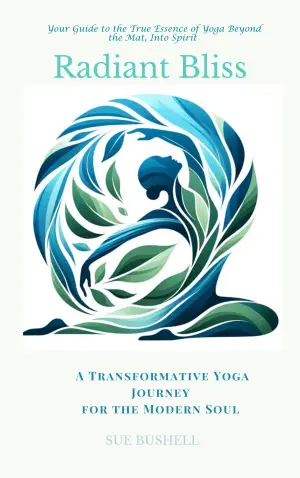Exploring Inner Space: A Review of Stories of Your Life and Others by Ted Chiang
When I stumbled upon Stories of Your Life and Others, I was drawn in by its intriguing cover and the promise of speculative fiction that juggles hefty ideas about humanity, language, and existence. Ted Chiang isn’t just another author; he’s a masterful technical writer in the software industry whose limited yet powerful body of work has amassed major literature awards, including four Hugos and four Nebulas. With only 15 published works, his writing is a treasure trove of profound insights, and this collection is no different.
Chiang’s stories invite readers to journey through the contours of the human experience, often questioning what it means to be human. The opening tale, "Tower of Babylon," sets a remarkable tone—a meticulous narrative steeped in ancient civilization. Here, we embark on a quest to drill through the vault of heaven, a poignant metaphor for human aspiration and divine questioning. The suspense of whether Yahweh will be pleased or punishing reverberates throughout the tale, making me reflect deeply on the purpose of human endeavor.
Chiang’s prose is an experience unto itself, marked by clarity and elegance that draws you into the most intricate ideas without losing you in technical jargon. In "Understand," for instance, we witness Leon’s exponential intelligence enhancement post-coma. It’s both exhilarating and terrifying, leading to existential musings on how knowledge can transform one’s understanding—ultimately asking if the thirst for knowledge masks a more human need for connection.
One of my favorite quotes from "Understand" captures this beautifully: “I know precisely how I know, and my understanding is recursive.” It’s a moment of sheer brilliance that left me pondering the complexities of consciousness and communication, a hallmark of Chiang’s writing.
In "The Story of Your Life," which many may recognize as the source for the acclaimed film Arrival, Chiang masterfully intertwines language and perception. It resonates with anyone grappling with the challenges of communication and the nuances that shape relationships. The underlying message about how our understanding of language shapes our realities stuck with me long after I turned the last page.
While not all stories resonated equally—such as "Seventy-Two Letters," which felt a bit convoluted in its steampunk biotech exploration—the collection as a whole is a media-rich tapestry that stimulates thought. "Hell is the Absence of God," another standout, pushes the boundaries of theological discussion, challenging readers to confront their beliefs about fairness and justice in a world where divine intervention exists yet leads to chaos.
In terms of pacing, I found some stories offered a slower, reflective rhythm, while others were a whirlwind of ideas that demanded immediate contemplation. This ebb and flow mimics the nature of thought itself: sometimes deliberate and contemplative, other times rapid and complex.
Stories of Your Life and Others is not merely for science fiction aficionados; it’s a read for anyone who enjoys wrestling with the “big questions.” Whether you’re a seasoned reader or someone dabbling into speculative fiction for the first time, Chiang’s writing offers a unique lens through which to view the intricacies of human experience and our place in the universe.
In conclusion, I walked away from this collection feeling not only entertained but enriched, as if I had traversed inner and outer space simultaneously. I highly recommend this collection to anyone eager to engage with deep philosophical questions wrapped in imaginative narratives. Chiang’s ability to evoke empathy and reflection will surely resonate with all who explore the depths of his words.
Discover more about Stories of Your Life and Others on GoodReads >>















